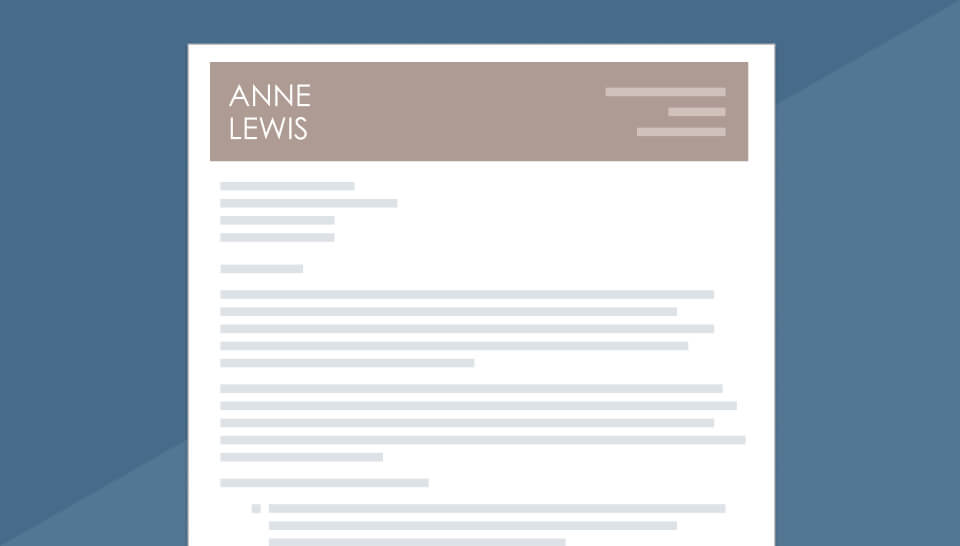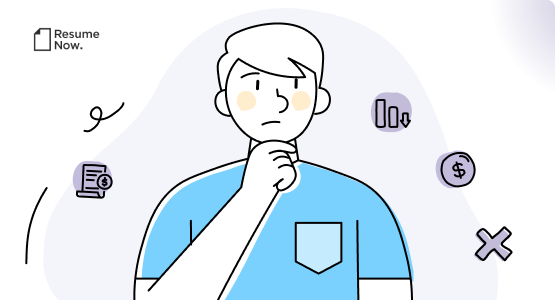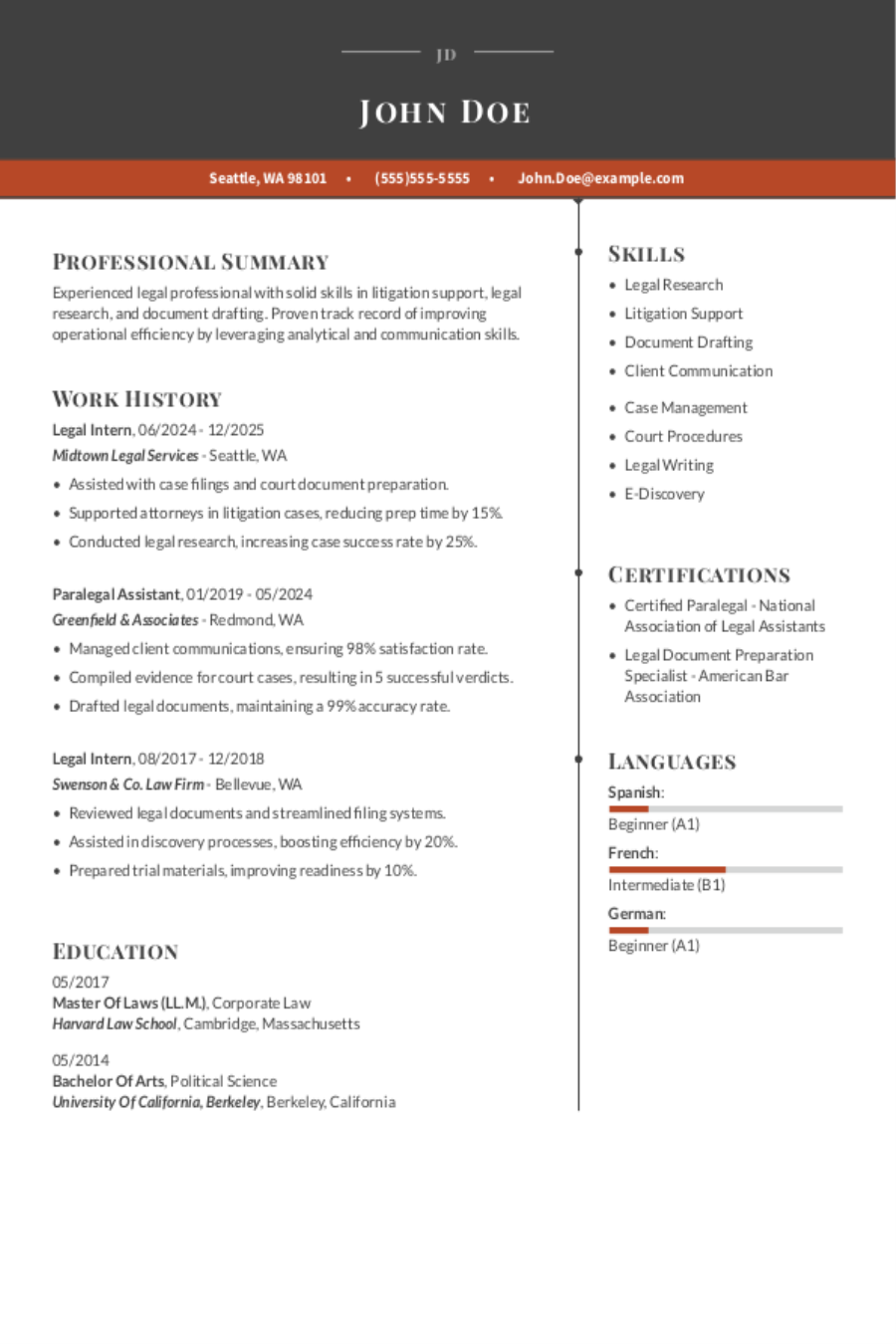In today's competitive job market, you need every advantage you can get to stand out from the crowd and impress employers. Including unique and highly sought-after skills on your resume is one of the strategies you can use to catch their attention.
Show employers you're capable of bringing a unique perspective to their role, exceeding expectations, and achieving results by showing off your unique skill set on your resume.
Here's what our guide will cover:
- How we define unique skills
- Examples of unique skills for your resume
- How to add these skills to your resume
- Additional resources on specific skill sets
Need help creating a unique resume? Consider using Resume Now's AI Resume Builder to streamline the process. Our innovative platform is easy to use, accessible from anywhere, and can suggest unique skills that you can effortlessly incorporate into your resume with a single click.
What Are Unique Skills?
Unique skills are the abilities and competencies that set you apart from the crowd. They tend to be the distinguishing factors that can turn a standard application into a standout, memorable one.
Beyond that, you don't want your resume or LinkedIn profile to be full of the skills recruiters find everywhere. Sure, you need to cover your basics—but you want to impress them, too.
Unique skills are important in every industry, from creative fields like graphic design and video production to more button-down careers like financial analysis and legal work. It's all about connecting your experiences and your next job.
Alright, now that you understand what makes a skill unique, let's run through some examples based on our extensive review of resumes and cover letters.
35+ Unique Skills to Include on Your Resume
The number of unique skills is virtually limitless, so how do we narrow it down? Well, we searched for the sweet spot between rarity and utility by focusing on skills that are both unique and useful in the job market and beyond.
You'll notice the skills range from soft skills to hard skills, with plenty of computer skills and other categories thrown into the mix.
Okay, let's get to it.
Cultural competency
Understanding and interacting effectively across diverse cultures is not just about speaking multiple languages but also about navigating and respecting cultural nuances. Now more than ever, the unique skills below are highly prized in the workplace:
- Cultural adaptability
- Multilingual communication
- Global mindset
- Cultural sensitivity training
Data skills
The ability to work with data, whether trying to tell a story or create a chart for your next meeting, is a hugely valuable—and still unique—skill to develop. Here's a list of unique data skills that will help you land a job:
- Predictive modeling
- Data scrubbing
- Quantitative analysis
- Geospatial analysis
- Data governance
Adaptive thinking
Adaptation is crucial in both the business world and everyday life. In business, they use "creative destruction" to refer to the upheaval of entire industries. If you can navigate this tricky terrain using adaptive thinking, your skill set would be quite unique. Here are a few skills that fit the bill:
- Scenario planning
- Agile methodology
- Creative problem-solving
- Futuristic thinking
- Complexity management
Storytelling
Narratives have a huge impact on how we see the world. If you can tell a good story, you can engage audiences and even shape minds. Here are a few unique skills often associated with storytelling:
- Digital storytelling
- Transmedia narration
- Visual storytelling
- Interactive storytelling
- Narrative analytics
- Data visualization
Ethical behavior
Perhaps this skill set shouldn't be unique, but truthfully, there are many people who don't have strong ethics or don't put them on their resume. You can set yourself apart by including some of these skills on your resume:
- Corporate social responsibility (CSR)
- Ethical decision-making
- Transparency advocacy
- Integrity auditing
- Whistleblowing policies
More unique skills
The nature of unique skills means some of them are totally unclassifiable. Here are some skills that don't quite fit in the list above:
Unique soft skills for your resume:
- Curiosity: A driving force for innovation and continuous learning
- Optimism: A skill that enables a positive approach to problem-solving and leadership
- Empathy: Crucial for customer service, UX design, and any role involving teamwork
- Self-awareness: Key for leadership, and helps in personal development and conflict resolution
- Mindfulness techniques: A practice that enhances focus, reduces stress, and improves decision-making
- Resilience: The ability to bounce back from setbacks and maintain steady progress under pressure, a vital skill in navigating career challenges and personal adversities
Unique technical skills for your resume:
- Design thinking: A problem-solving approach that involves empathizing with users, ideation, prototyping, and testing solutions, applicable in product development, project management, and more
- Neuro-linguistic programming (NLP): Understanding and utilizing techniques to influence and persuade through language; valuable in sales, marketing, therapy, and coaching
- Cybersecurity: Understanding how to assess and mitigate digital risks, an increasingly in-demand skill as businesses face security threats
- Augmented reality development: Creating immersive AR experiences that can be applied in marketing, training, and beyond
- Sustainable development: Related to planning and implementing projects that aim to have a positive environmental impact
- Quantum computing: A niche and futuristic skill set involving understanding the basics of quantum algorithms and their applications
How to Add Unique Skills to Your Resume
Adding skills to your resume is simple, and we're happy to show you how it's done.
There are only a few steps, but we need to assess the job description before we even look at your resume.
Step 1
Look for unique skills in the job ad
Employers calibrate their job descriptions carefully. They approach them with a list of skills and abilities. Some are required, while others would be nice to have.
After the job listing is posted, the skills are loaded into software called an applicant tracking system (ATS). The system will automatically reject resumes that don't include the most important skills.
That's why reading the job description carefully is so important. When you're reading, look for the keywords (aka skills) that seem unique to the company. The phrasing might be slightly different than the words you'd use in your previous job, and that's okay! Use the exact language anyway.
Here's an example of a job description for a software analyst with unique skills in bold:
Job title: Software analyst
Location: Remote
Job description:
We seek a software analyst with unique skills to join our diverse and dynamic team. This role demands proficiency in quantitative analysis for optimizing software functionalities and scenario planning to anticipate future needs and integration capabilities. The ideal candidate will have a robust understanding of digital storytelling to effectively communicate complex software processes and a strong foundation in ethical decision-making to guide all project activities.
Responsibilities:
- Apply transmedia narration techniques to create accessible documentation and training materials across different media.
- Engage in Agile methodology to manage and adapt to the rapid changes in software development projects.
- Utilize data scrubbing to ensure the accuracy and integrity of data used in our systems.
- Promote corporate social responsibility (CSR) initiatives within the tech development process to align with sustainable practices.
- Foster an inclusive workplace by leveraging cultural adaptability to collaborate effectively with international teams.
Next, we'll show you how to weave them throughout your resume.
When listing your skills on a resume, avoid generic buzzwords like "synergy," "wheelhouse," or "think outside the box." These terms are often vague and don't clearly showcase your specific abilities or achievements. Instead, use precise and relevant keywords from the job description to make your resume stand out in both ATS scans and to human recruiters.
Step 2
Create a professional summary
Every resume kicks off with a professional summary or objective statement—a three- or four-sentence paragraph that gives the reader a high-level overview of your accomplishments and skills.
Here's what a summary looks like after you add unique skills:
Seasoned software analyst with over five years of experience in delivering robust IT solutions. Highly adept in quantitative analysis and scenario planning, with a proven track record of leveraging digital storytelling to simplify complex software architectures for diverse audiences. Skilled in ethical decision-making and promoting corporate social responsibility within tech projects. Excel at creating sustainable and inclusive software development environments.
This section of your resume is prime real estate. It should be strategically used to place your most important and relevant skills front and center.
Step 3
Build out your work history section
You can add even more unique skills to your resume when you recount your work history.
This section lets you list your previous roles and highlight how you effectively applied your unique skills in real-world scenarios. You'll provide concrete examples of your abilities and show prospective employers the direct impact of your contributions.
Here's what unique skills would look like in your work experience section:
Software Analyst, ABC Tech Solutions, New York, NY
January 2018 – June 2025
- Spearheaded a project using scenario planning techniques to anticipate market changes, leading to a 30% increase in product adaptability.
- Employed digital storytelling to translate complex software solutions into engaging customer presentations, enhancing client understanding and satisfaction rates.
- Championed corporate social responsibility initiatives, integrating sustainable practices into software development, which decreased project carbon footprints by 20%.
- Implemented ethical decision-making frameworks across all phases of software development, ensuring compliance with industry standards and reinforcing company integrity.
Step 4
Add skills throughout the rest of your resume
Okay, there are a few more ways to shout your skills from the rooftop.
In addition to your work history, don't overlook the education section, where you can mention relevant coursework, degrees, or certifications that have helped you develop unique skills.
The skills section itself is crucial—it's a concise way to list the skills you haven't had a chance to highlight in your experience or education sections. Tailor this section to include the unique skills most relevant to the job you're applying for.
If you have a wide array of skills and want to showcase these rather than a chronological work history, consider using a functional resume format. This format allows you to create multiple skills sections organized by theme or function, highlighting how your abilities align with the job requirements.
More Skills Resources
- Hard skills vs soft skills
- Employability skills
- People skills
- Transferable skills
- Management skills
- Presentation skills
- Communication skills
- Project management skills
- Writing skills
- Excel skills
- High-income skills
- Interpersonal skills
- Creative thinking skills
- Teamwork skills
Final Thoughts
Whether you focus on unique soft skills or technical knowledge, including unique skills on your resume will help you stand out in a competitive job market.
Need help thinking of skills to add to your resume's skills section? Try Resume Now's free AI Skills Section Generator. This tool automatically generates a list of skills based on your career that you can copy, paste, and use anywhere.
Key Takeaways
Unique skills are the perfect way to spice up your resume.
By showcasing unique abilities, you demonstrate to employers that you bring something special beyond the standard qualifications.
There are unique hard skills and unique soft skills.
Hard skills might include technical competencies like advanced data analysis, whereas soft skills could encompass traits such as creative problem-solving or ethical decision-making.
Look for unique skills in the job ad.
Identifying and matching the specific, unusual skills mentioned in a job advertisement can significantly increase your chances of getting noticed.
Unique skills can be added to every section of your resume.
Integrating these skills throughout your professional summary, experience, education, and skills sections creates a comprehensive profile highlighting your diverse capabilities.
Was this information helpful? Let us know!
Don is a Certified Professional Resume Writer (CPRW) with more than 10 years' experience creating digital content, including four years helping job seekers develop their careers. He holds an M.S. in Journalism from Northwestern University.
More resources

Summary of Qualifications: 13 Examples for Your Resume
Our guide will help you write a summary of qualifications that...

How to Write a Cover Letter in 2025
A great cover letter will impress employers and get you hired....

Cost of Living Crunch: 92% of Americans Cut Back Spending in 2025
Resume Now s survey reveals a cost of living crisis that has l...

Traditional Legal Internship Resume Example Guide
As a legal intern your resume should highlight essential skil...

Music Resume: Examples, Templates & Tips
As a music professional you need a resume that showcases your...

Psychology Resume: Examples, Templates and Tips
As a psychology professional you need a resume that highlight...
